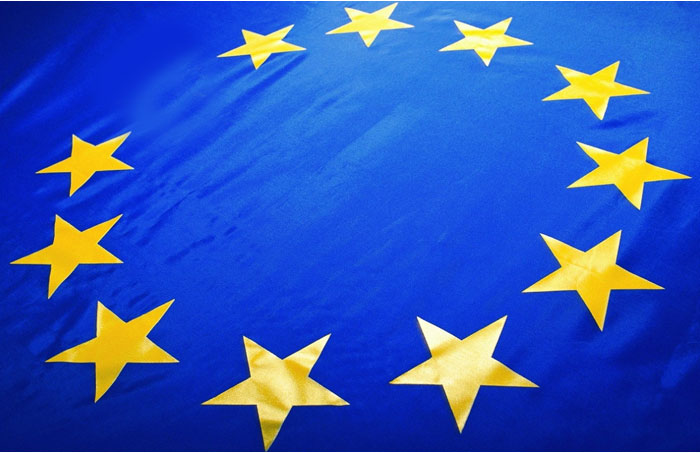
Cari inglesi vi scrivo…
-


Attacco Usa in Nigeria contro l’Isis, Trump: “Risposta al massacro di cristiani” VIDEO
-


Frana a Cormons: disperso un giovane e un’anziana sotto le macerie VIDEO
-


Tifone Fung-Wong colpisce le Filippine: un milione di evacuati VIDEO LIVE
-
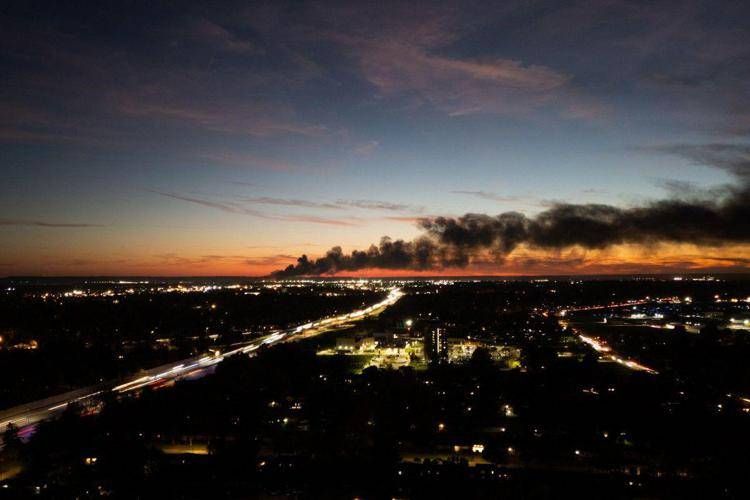

Cargo Ups precipita in Kentucky: sette morti e diversi feriti VIDEO
Cari inglesi,
come si presenta oggi il traffico a Dover? Dopo la proclamazione della Brexit, il day after era desolante: pochi doganieri sfaccendati, che alle bellissime Bianche Scogliere fermavano ogni tanto qualche raro autotreno, che audacemente ma invano tentava di varcare il muro della nuova burocrazia, quintali di complicati regolamenti appena sfornati dagli accordi di Bruxelles, con moduli e normative che da ora in poi sarà necessario decifrare, compilare e sottoscrivere per poter fare ingresso da voi. Spero non ad ogni veicolo. Un muro certo più innocuo di quello berlinese, ma forse altrettanto impenetrabile: al punto che i pochi esausti camionisti si sono arresi, per rientrare alle rispettive basi. Eppure non si trattava di avanguardie armate della Merkel – da Berlino, che io sappia, non è partito un solo V2 – ma di merci che noi avremmo interesse a vendervi, e voi a comprare. Ma non eravate fuggiti dall’Europa per sottrarvi all’invasiva burocrazia continentale? Perdonate il mio umorismo inglese, o quel tanto che ho assimilato: fino a ieri, almeno quello, circolava senza problemi. Per altri aspetti vi invidio: se non altro non dovrete litigare sugli aiuti dell’Europa. Da noi, in Italia, già si scannano.
Amo l’Inghilterra, amo Londra – civiltà, cultura, stile. Conosco poco il Galles, ho visto un po’ di Scozia. Beautiful! I miei genitori, a Genova, mi avevano concepito troppi anni fa sotto le vostre bombe, tra esplosioni e contraccolpi che certo avranno contribuito alla vivacità dell’amplesso, ma potrebbero anche aver creato turbe irreversibili nel nascituro. Forse a Dresda – uso un understatement – avete un po’ esagerato. Comunque mio padre, che con ombrello e bombetta si ispirava un po’ a Chamberlain, l’ho sempre chiamato Daddy. Proprio lui, fin da piccolo, mi ha insegnato a distinguere l’aspetto politico da quello militare: nel senso che ci stavate liberando, perciò era giusto stroncare nazismo e fascismo, con il loro nazionalismo prepotente e gretto: anche a costo di vite italiane, com’è avvenuto.
Da lì presi le mosse per cogliere il valore della vostra eredità: dalla Magna Charta al pensiero empirico e liberale, con Adam Smith che teorizzava i principi del libero scambio internazionale non meno del commercio interno. Gli economisti britannici aborrono protezionismo e dazi, quasi più dei doganieri, per i quali è tutto lavoro in più. E poi la Magna Charta, l’Habeas Corpus, Locke e la divisione dei poteri. Last not least, Shakespeare. Giù giù, fino all’eroica epopea dello Sbarco in Normandia con gli alleati americani e tutti gli altri. Che Dio vi benedica.
Poi, a partire dall’ultimo dopoguerra, è seguito nel continente quel lunghissimo tempo di pace che tuttora viviamo, il più lungo nella storia moderna. Negli ultimi decenni ci avete dato moltissimo: Agatha Christie e la minigonna, i Beatles, James Bond. La Mini. Senza dimenticare istrioni immortali come Alec Guinnes e Charles Laughton. E poi l’ineffabile umorismo di Jerome e Wodehouse. Il tè delle cinque. Le notizie separate dai commenti, che purtroppo molto giornalismo non vuole ancora imparare. E ancora, i figli dei fiori, la swinging London… Ma certo non sarebbe bastato il mistico pacifismo di quei variopinti ragazzi a tenere lontani i cannoni. No: c’è voluta una struttura sovranazionale riconosciuta che garantisse e razionalizzasse nel continente una libera circolazione di uomini e merci. Libertà e regole, secondo la migliore etica protestante: più che mai indispensabile quando le maggiori economie mondiali procedono per blocchi continentali. Così l’aggressività militare si sublima nella competizione commerciale, e Marte si fa Mercurio, dio greco dei mercanti. Come è potuto accadere? Ce lo spiega un grandissimo europeista, un gigante del Novecento, che ha anticipato di qualche anno gli Schuman, gli Adenauer e il nostro De Gasperi. Vogliamo dargli la parola?
Disse quel Grande: “Vorrei parlare del dramma dell’Europa, questo nobile continente, patria di tutte le grandi stirpi dell’Occidente, fonte della fede e dell’etica cristiana, culla di gran parte delle culture, delle arti, della filosofia e della scienza, dei tempi antichi e moderni. Se un giorno l’Europa si unisse per condividere questa eredità comune, non vi sarebbero limiti alla felicità, alla prosperità e alla gloria per i suoi abitanti“. Per concludere: “Dobbiamo costruire una forma di Stati Uniti d’Europa.” Quel grande europeista era Winston Churchill (discorso all’Università di Zurigo, settembre 1946): il vostro immenso patriota che con parole come queste già superava ogni inutile contrapposizione tra sovranismo e globalismo. Il coraggioso genio che per primo seppe intuire cosa fossero davvero il nazismo e il comunismo, quando Roosevelt e Stalin erano ancora alleati.
Per questo rattrista lo spettacolo di quei doganieri spaesati. Per non parlare della bellissima libertà di circolare senza passaporto per paesi anche molto diversi. Sempre a proposito di sovranità e frontiere: come andrà a finire con una Scozia culturalmente europea? E le due Irlande? Tutti speriamo che con la Brexit si esauriscano le convulsioni di una prolungata crisi di identità: britannici o europei? Isolani o isolati? Ma certo si prospettano nuove incognite e turbolenze, mentre fa riflettere l’incerta condizione culturale di un ex sistema coloniale: non più Impero, certo. Niente più Dominions. Eppure permangono vaghe suggestioni imperiali, forse con l’idea illusoria d’aver chiuso fuori il resto del mondo.
Gian Luca Caffarena
Winston Churchill
Speech delivered at the University of Zurich, 19 September 1946
I wish to speak about the tragedy of Europe, this noble continent, the home of all the great parent races of the Western world, the foundation of Christian faith and ethics, the origin of most of the culture, arts, philosophy and science both of ancient and modern times. If Europe were once united in the sharing of its common inheritance there would be no limit to the happiness, prosperity and glory which its 300 million or 400 million people would enjoy. Yet it is from Europe that has sprung that series of frightful nationalistic quarrels, originated by the Teutonic nations in their rise to power, which we have seen in this 20th century and in our own lifetime wreck the peace and mar the prospects of all mankind.
What is this plight to which Europe has been reduced? Some of the smaller states have indeed made a good recovery, but over wide areas are a vast, quivering mass of tormented, hungry, careworn and bewildered human beings, who wait in the ruins of their cities and homes and scan the dark horizons for the approach of some new form of tyranny or terror. Among the victors there is a Babel of voices, among the vanquished the sullen silence of despair. That is all that Europeans, grouped in so many ancient states and nations, and that is all that the Germanic races have got by tearing each other to pieces and spreading havoc far and wide. Indeed, but for the fact that the great republic across the Atlantic realised that the ruin or enslavement of Europe would involve her own fate as well, and stretched out hands of succour and guidance, the Dark Ages would have returned in all their cruelty and squalor. They may still return.
Yet all the while there is a remedy which, if it were generally and spontaneously adopted by the great majority of people in many lands, would as by a miracle transform the whole scene and would in a few years make all Europe, or the greater part of it, as free and happy as Switzerland is today. What is this sovereign remedy? It is to recreate the European fabric, or as much of it as we can, and to provide it with a structure under which it can dwell in peace, safety and freedom. We must build a kind of United States of Europe. In this way only will hundreds of millions of toilers be able to regain the simple joys and hopes which make life worth living. The process is simple. All that is needed is the resolve of hundreds of millions of men and women to do right instead of wrong and to gain as their reward blessing instead of cursing.
Much work has been done upon this task by the exertions of the Pan-European Union, which owes so much to the famous French patriot and statesman Aristide Briand. There is also that immense body which was brought into being amidst high hopes after the First World War – the League of Nations. The League did not fail because of its principles or conceptions. It failed because those principles were deserted by those states which brought it into being, because the governments of those states feared to face the facts and act while time remained. This disaster must not be repeated. There is, therefore, much knowledge and material with which to build and also bitter, dearly bought experience to spur.
There is no reason why a regional organisation of Europe should in any way conflict with the world organisation of the United Nations. On the contrary, I believe that the larger synthesis can only survive if it is founded upon broad natural groupings. There is already a natural grouping in the Western Hemisphere. We British have our own Commonwealth of Nations. These do not weaken, on the contrary they strengthen, the world organisation. They are in fact its main support. And why should there not be a European group which could give a sense of enlarged patriotism and common citizenship to the distracted peoples of this mighty continent?
And why should it not take its rightful place with other great groupings and help to shape the honourable destiny of man? In order that this may be accomplished there must be an act of faith in which the millions of families speaking many languages must consciously take part.
We all know that the two World Wars through which we have passed arose out of the vain passion of Germany to play a dominating part in the world. In this last struggle crimes and massacres have been committed for which there is no parallel since the Mongol invasion of the 13th century, no equal at any time in human history. The guilty must be punished. Germany must be deprived of the power to rearm and make another aggressive war. But when all this has been done, as it will be done, as it is being done, there must be an end to retribution. There must be what Mr. Gladstone many years ago called a “blessed act of oblivion”. We must all turn our backs upon the horrors of the past and look to the future. We cannot afford to drag forward across the years to come hatreds and revenges which have sprung from the injuries of the past. If Europe is to be saved from infinite misery, and indeed from final doom, there must be this act of faith in the European family, this act of oblivion against all crimes and follies of the past. Can the peoples of Europe rise to the heights of the soul and of the instinct and spirit of man? If they could, the wrongs and injuries which have been inflicted would have been washed away on all sides by the miseries which have been endured. Is there any need for further floods of agony? Is the only lesson of history to be that mankind is unteachable? Let there be justice, mercy and freedom. The peoples have only to will it and all will achieve their heart’s desire.
I am now going to say something that will astonish you. The first step in the re-creation of the European family must be a partnership between France and Germany. In this way only can France recover the moral and cultural leadership of Europe. There can be no revival of Europe without a spiritually great France and a spiritually great Germany. The structure of the United States of Europe will be such as to make the material strength of a single State less important. Small nations will count as much as large ones and gain their honour by a contribution to the common cause. The ancient States and principalities of Germany, freely joined for mutual convenience in a federal system, might take their individual places among the United States of Europe.
But I must give you warning, time may be short. At present there is a breathing space. The cannons have ceased firing. The fighting has stopped. But the dangers have not stopped. If we are to form a United States of Europe, or whatever name it may take, we must begin now. In these present days we dwell strangely and precariously under the shield, and I even say protection, of the atomic bomb. The atomic bomb is still only in the hands of a nation which, we know, will never use it except in the cause of right and freedom, but it may well be that in a few years this awful agency of destruction will be widespread and that the catastrophe following from its use by several warring nations will not only bring to an end all that we call civilisation but may possibly disintegrate the globe itself.
I now sum up the propositions which are before you. Our constant aim must be to build and fortify the United Nations Organisation. Under and within that world concept we must re- create the European family in a regional structure called, it may be, the United States of Europe, and the first practical step will be to form a Council of Europe. If at first all the States of Europe are not willing or able to join a union we must nevertheless proceed to assemble and combine those who will and who can. The salvation of the common people of every race and every land from war and servitude must be established on solid foundations, and must be created by the readiness of all men and women to die rather than to submit to tyranny. In this urgent work France and Germany must take the lead together. Great Britain, the British Commonwealth of Nations, mighty America – and, I trust, Soviet Russia, for then indeed all would be well – must be the friends and sponsors of the new Europe and must champion its right to live. Therefore I say to you “Let Europe arise!”.
-

 World13 ore ago
World13 ore agoGelo in Siberia, fino a -56 gradi in Jacuzia e disagi diffusi
-
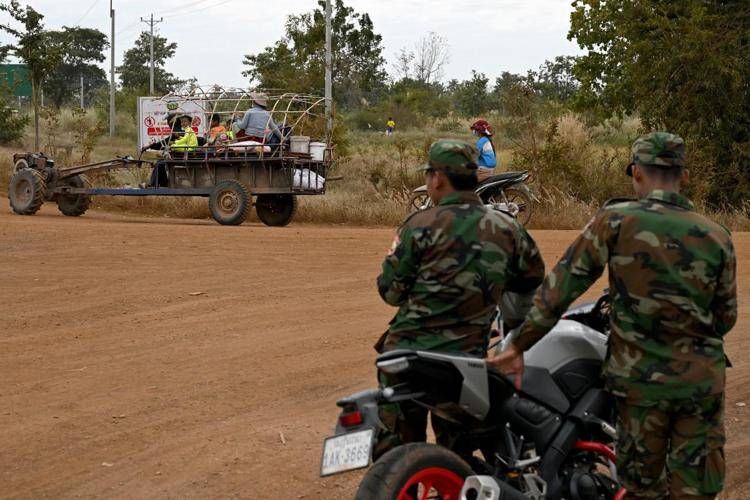
 World18 ore ago
World18 ore agoScontri tra Cambogia e Thailandia, accuse reciproche di bombardamenti
-

 Primo Piano21 ore ago
Primo Piano21 ore agoAttacco Usa in Nigeria contro l’Isis, Trump: “Risposta al massacro di cristiani” VIDEO
-

 Flash20 ore ago
Flash20 ore agoProiettile vagante a Pomigliano d’Arco, 47enne ferito mentre passeggia







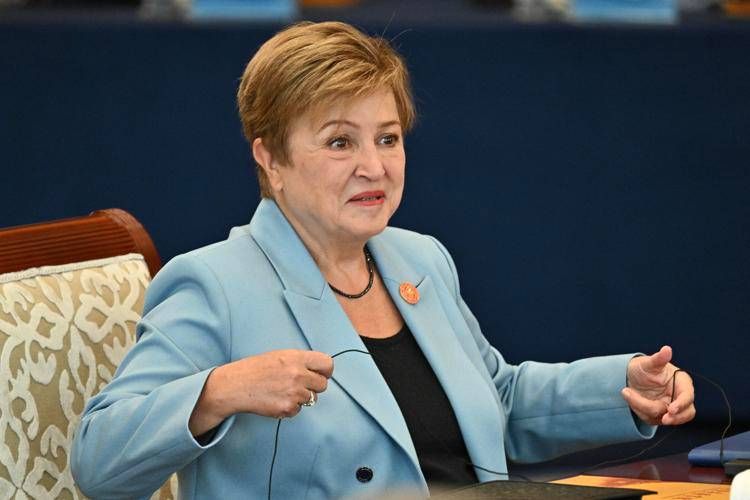
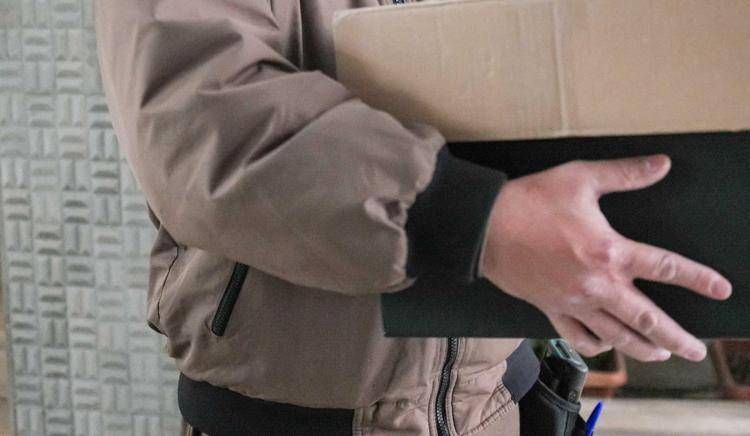
Devi effettuare l'accesso per postare un commento.